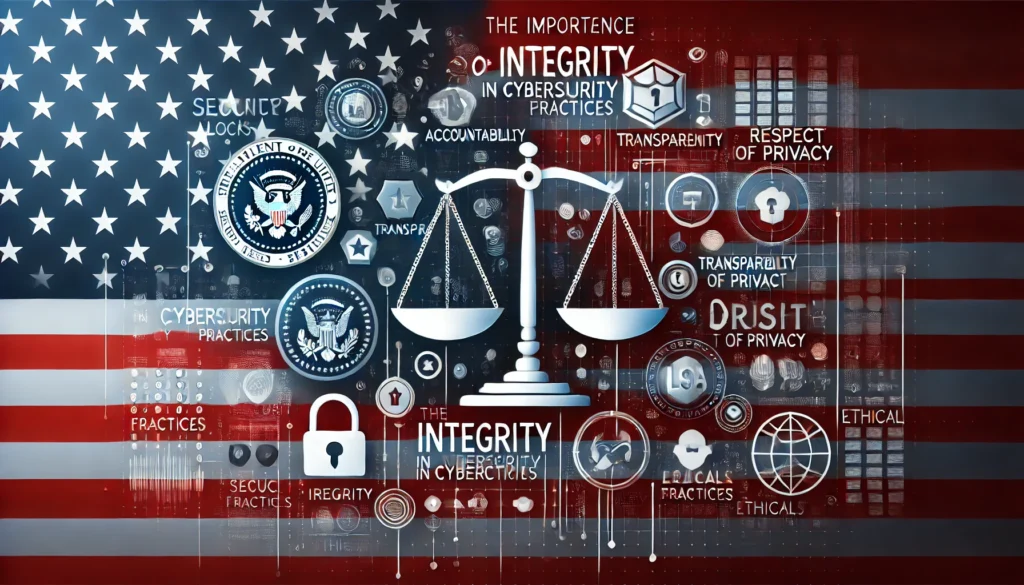Elasticity LLC – Agile DevSecOps Cloud IT Services

The Importance of Integrity in Cybersecurity Practices
In today’s digital world, cybersecurity is not just about protecting data from unauthorized access; it’s about ensuring that every step in protecting this data is handled with integrity. For organizations, particularly those in the federal government sector, understanding the ethical considerations and standards necessary for maintaining integrity in cybersecurity practices is crucial. This educational overview will help explain why integrity is a fundamental component of effective cybersecurity.
Core Aspects of Integrity in Cybersecurity
Transparency: Integrity begins with transparency. It’s vital for organizations to be open about how they handle data. This includes disclosing what data is collected, how it is processed, and who has access to it. Transparency not only builds trust with stakeholders but also establishes a framework where all actions are open to scrutiny.
Accountability: Accountability ensures that actions taken by an organization can be traced and justified. This means having clear policies and procedures in place that define how data should be handled, ensuring these policies are followed, and having mechanisms to verify compliance. Accountability helps prevent misuse of data and ensures that any actions taken are within the bounds of ethical and legal standards.
Respect for Privacy: Respecting the privacy of individuals whose data is being protected is a critical element of integrity. This involves implementing stringent measures to protect personal and sensitive information from unauthorized access and ensuring that data usage complies with relevant privacy laws and regulations.
Aligning with Standards and Best Practices
Adherence to NIST 800-53 and FISMA: The NIST 800-53 standards provide a comprehensive set of security controls that help federal agencies and contractors improve their security posture. Similarly, FISMA requires federal agencies to develop, document, and implement an information security system. Understanding and implementing these standards are essential for maintaining integrity, as they provide structured and proven guidelines for protecting information systems.
Global Standards Like ISO/IEC 27001: Beyond federal regulations, aligning with global standards such as ISO/IEC 27001 can help organizations manage the security of assets like financial information, intellectual property, and employee details. These standards provide a blueprint for managing information security risk in a systematic and consistent manner.
Why Integrity Matters in Cybersecurity
Building Trust: In a world where data breaches are common, maintaining integrity in cybersecurity practices helps build trust with users, clients, and partners. When stakeholders know that an organization commits to ethical data handling, their confidence in the security measures of that organization increases.
Ensuring Compliance and Avoiding Penalties: Many sectors, especially the federal government, are regulated to ensure data is handled securely and ethically. Organizations that maintain integrity in their cybersecurity practices are better positioned to comply with these regulations and avoid potential fines and penalties associated with non-compliance.
Safeguarding Reputation: Integrity in cybersecurity practices protects not only data but also the reputation of the organization. A breach resulting from poor security practices can damage an organization’s reputation significantly, often with long-term consequences.
A Call for Ethical Cybersecurity
Understanding and implementing integrity in cybersecurity practices is crucial for any organization that aims to protect itself and its stakeholders effectively. It’s not merely about following rules but about fostering an ethical culture that prioritizes the security and privacy of data above all else.
For those involved in or interested in cybersecurity, especially within the federal government, it’s essential to recognize the importance of integrity at every level of data handling and protection. Contact us to learn more about how ethical considerations shape cybersecurity. Let’s champion cybersecurity practices that respect both security needs and ethical standards.
